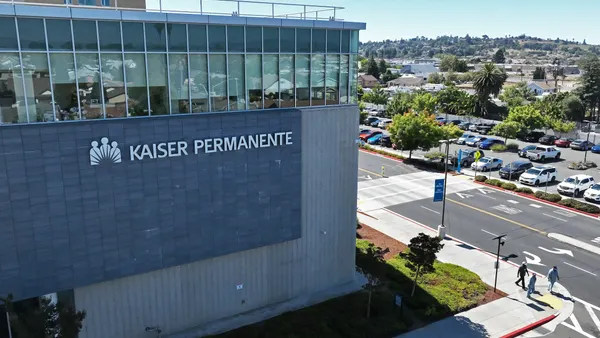Dive Brief:
- Medicare fails to track several expensive, frequently occurring hospital complications, according to a new analysis by Premier, Inc. of Charlotte, NC. Premier works with a collaborative of about 3,000 U.S. hospitals and 110,000 other providers on healthcare quality improvement efforts.
- Premier looked at 5.5 million 2013 discharges across 530 hospitals to identify and analyze a wider set of potential inpatient complications. It identified 86 “high-impact” complications associated with nearly 50,000 deaths, $4.3 billion in added costs and 1.7 million added hospital days.
- In contrast to complications eligible for CMS penalties under Medicare, Premier's analysis found many more safety events happening with greater frequency, at a greater cost to patients and the healthcare system overall.
Dive Insight:
In releasing its study, Premier said that although preventing harm in healthcare continues to be a major focus for hospitals, proactively identifying and tracking it is "an imprecise science." Premier cited a handful of efforts to help hospitals identify a broader set of complications, including through Medicare, but explained that many efforts only focus on very rare events and are narrow in scope.
Hospital infections pose significant health and financial risks. About one in 20 hospitalized patients gets a hospital-acquired infection, leading to nearly 100,000 deaths per year, the CDC says. Understanding the causes of infection is strategically important for hospital administrators trying to set up effective infection-control programs. AHRQ says the problem has resulted in considerable regulatory attention, noting that CMS doesn't reimburse hospitals for certain hospital-acquired infections in Medicare patients. But Premier's analysis indicates there's still a long way to go. Hospitals are trying to do something about it. Federal regulators must step up to the plate, too, because the problem isn't going away any time soon.












